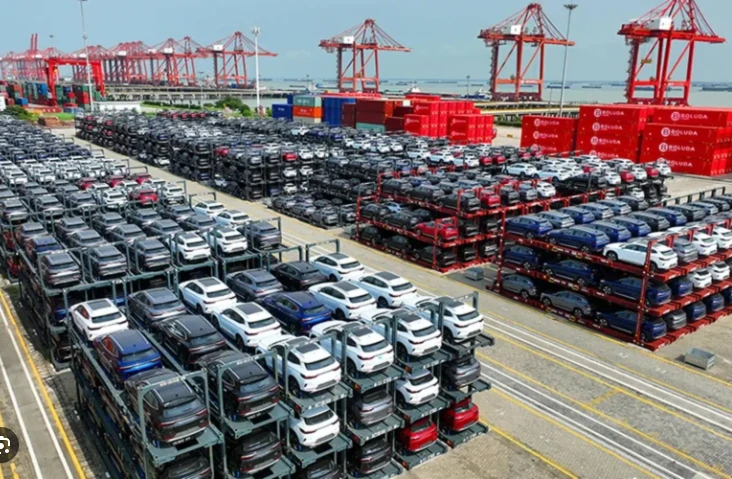EU slaps Chinese electric cars with tariffs of up to 38%

Stay tuned with 24 News HD Android App

The European Union on Thursday slapped extra provisional duties of up to 38 percent on Chinese electric car imports because of "unfair" state subsidies, despite Beijing's warnings the move would unleash a trade war.
Brussels launched an investigation last year into Chinese electric vehicle manufacturers to probe whether state subsidies were unfairly undercutting European automakers.
Since announcing the planned tariff hike last month -- on top of current import duties of 10 percent -- the European Commision has begun talks with Beijing to try to resolve the issue, with China threatening retaliation.
"Our investigation... concluded that the battery electric vehicles produced in China benefit from unfair subsidisation, which is causing a threat of economic injury to the EU's own electric car makers," the EU's trade chief Valdis Dombrovskis said.
In response, the commission said it has imposed provisional duties on Chinese manufacturers including 17.4 percent for market major BYD, 19.9 percent for Geely and 37.6 percent for SAIC.
The rates were adjusted slightly downwards for Geely and SAIC, from an initially-announced 20 percent and 38.1 percent, after further information provided by "interested parties", it said.
They will kick in from Friday, with definitive duties to take effect in November for a period of five years, pending a vote by the EU's 27 member states.
Electric car producers in China that cooperated with the EU will face a tariff of 20.8 percent, while those that did not cooperate would be subject to a 37.6 percent duty.
- 'Intensive' talks with China -
The move comes despite talks between Chinese and EU trade officials on June 22, but Brussels will continue "to engage intensively with China on a mutually acceptable solution", trade chief Dombrovskis said.
"Any negotiated outcome to our investigation must clearly and fully address EU concerns and be in respect of WTO rules," he said in a statement.
Beijing has already signalled its readiness to retaliate by launching an anti-dumping probe last month into pork imports, threatening Spanish exports. Chinese media suggest Beijing will trigger further probes.
Chinese officials have also railed against probes targeting state subsidies in the green tech sector including wind turbines and solar panels.
"It is plain for all to see who is escalating trade frictions and instigating a 'trade war'," a spokesperson for the Chinese commerce ministry said on June 21.
The United States has already hiked customs duties on Chinese electric cars to 100 percent, while Canada is considering similar action.
But Brussels faces a delicate balancing act as it seeks to defend Europe's auto industry -- the jewel in its industrial crown with iconic brands such as Mercedes -- while avoiding a showdown with China and meeting its targets for slashing carbon emissions.
The EU aims to get more Europeans driving electric vehicles as it plans to outlaw the sale of new fossil fuel-powered cars from 2035.
Chinese-made vehicles' market share in EU electric car sales climbed from around three percent to more than 20 percent in the past three years, according to the European Automobile Manufacturers' Association.
Chinese brands account for around eight percent of that share, it said.
Germany's Kiel Institute for the World Economy, alongside Austrian institutes, predicted the provisional higher taxes would reduce vehicle imports from China by 42 percent. They added that electric car prices could rise by an average of 0.3 to 0.9 percent in the EU.
- German displeasure -
Germany, a significant trade partner to China, is unhappy about the EU's move. German auto manufacturers fear any retaliation could hurt their activities in China.
Germany's Vice Chancellor Robert Habeck visited Beijing last month on an 11th hour mission to find a way out of a damaging trade war.
But Germany's moves to appease China, like reportedly offering a compromise to lower tariffs to 15 percent, were described by some in the automotive industry as a stunt.
In contrast, French auto makers have welcomed the tariffs to level the playing field.
Electric automaker Tesla, owned by tech billionaire Elon Musk, is the only company that has asked Brussels for its own duty rate calculated based on evidence it has submitted.
